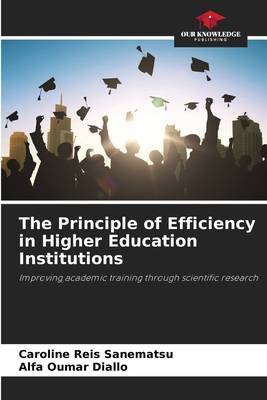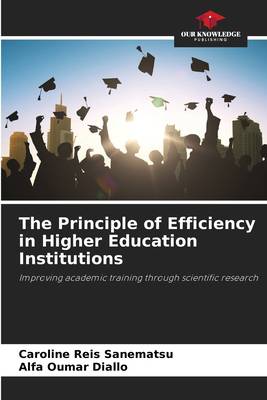
- Afhalen na 1 uur in een winkel met voorraad
- Gratis thuislevering in België vanaf € 30
- Ruim aanbod met 7 miljoen producten
- Afhalen na 1 uur in een winkel met voorraad
- Gratis thuislevering in België vanaf € 30
- Ruim aanbod met 7 miljoen producten
Zoeken
The Principle of Efficiency in Higher Education Institutions
Improving academic training through scientific research. DE
Caroline Reis Sanematsu, Alfa Oumar Diallo
Paperback | Engels
€ 77,45
+ 154 punten
Omschrijving
Throughout history, successive models of political and social organisation have shown human concern about the system that would enable the 'best' governance, i.e. administrative efficiency. In the context of higher education institutions, efficiency improves the provision of services which, in turn, improves student training and, in the long term, promotes benefits for the whole community. This is the close relationship between efficiency and scientific-academic research, since achieving the principle of efficiency in universities is permeated by improving the science produced within them. Every context can always be improved, because any public administration body that undergoes planned interventions can improve its actions and, consequently, its results, with a view to increasing the impact of the institution on the local community and, perhaps, on society as a whole.
Specificaties
Betrokkenen
- Auteur(s):
- Uitgeverij:
Inhoud
- Aantal bladzijden:
- 88
- Taal:
- Engels
Eigenschappen
- Productcode (EAN):
- 9783330847040
- Verschijningsdatum:
- 15/04/2025
- Uitvoering:
- Paperback
- Formaat:
- Trade paperback (VS)
- Afmetingen:
- 152 mm x 229 mm
- Gewicht:
- 127 g

Alleen bij Standaard Boekhandel
+ 154 punten op je klantenkaart van Standaard Boekhandel
Beoordelingen
We publiceren alleen reviews die voldoen aan de voorwaarden voor reviews. Bekijk onze voorwaarden voor reviews.








